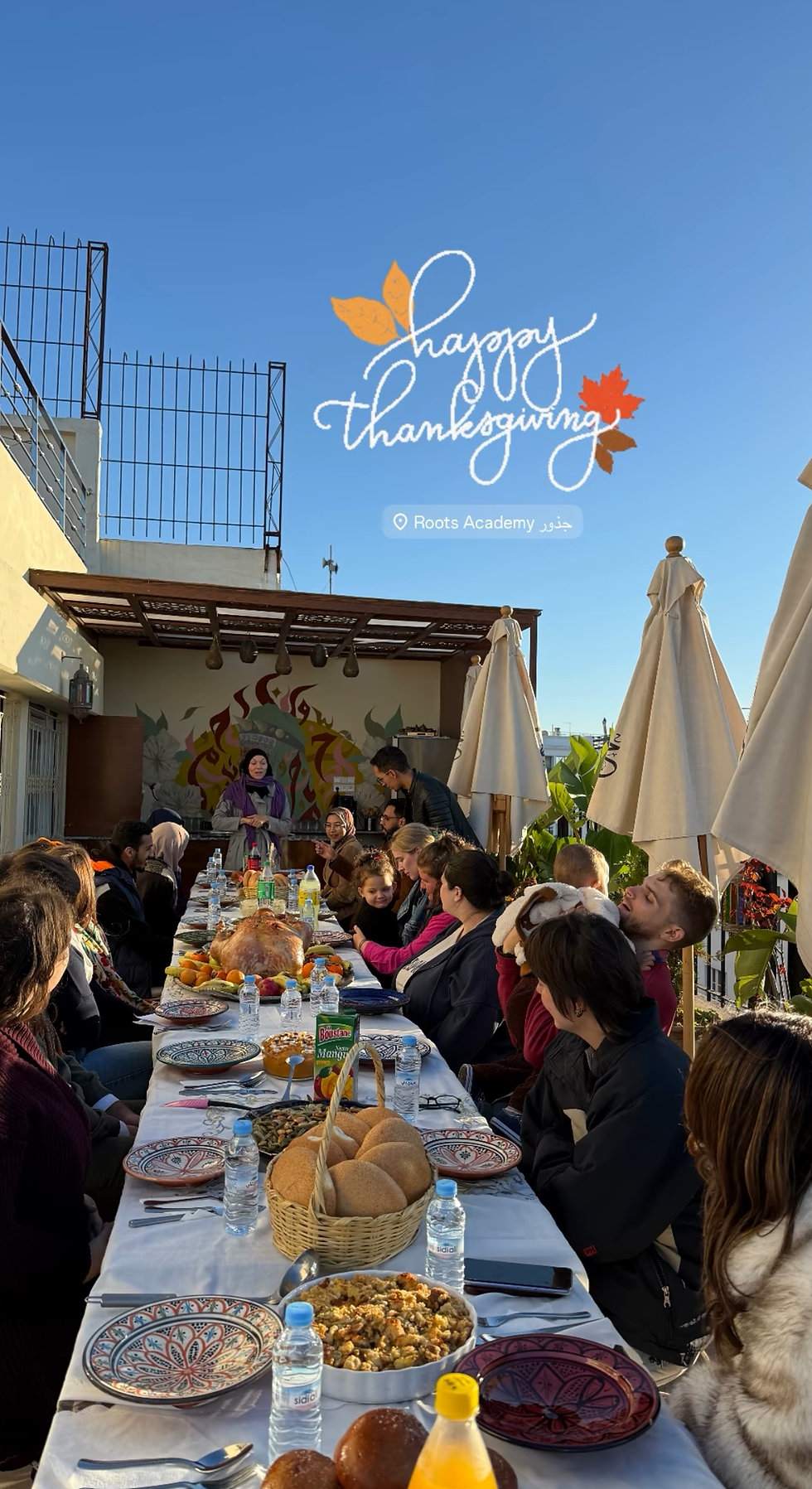Finding My Words: Language Learning in Rabat
- Allyson Gilbert
- Sep 17, 2025
- 3 min read
السلام عليكم — as-salāmu ʿalaykum
That’s one of the first phrases I learned upon arriving in Morocco. It means “peace be upon you,” and it’s the standard greeting here. The best part is that you don’t have to know much more—simply saying it brings smiles, nods, and a warm response: وعليكم السلام (wa ʿalaykum as-salām). It’s a reminder that even the smallest attempt at connection matters.
Since I’ve been here, I’ve started taking lessons in Darija, the Moroccan dialect of Arabic, at Roots Academy in Rabat. It’s been such a rewarding experience. My teachers are patient and encouraging, even when I trip over sounds or forget a word five seconds after I learn it. They don’t just teach vocabulary—they make the language feel alive, tied to culture, humor, and daily life.
In class, I often feel like I’m making steady progress. I can repeat words, practice phrases, and piece together sentences. But outside of the classroom? That’s where it gets humbling fast. At restaurants, for example, my go-to strategy right now is to point at the menu with a confident smile, as if that’s exactly what I meant to do all along. Sometimes this works beautifully; other times, I end up with something entirely unexpected. Still, I’ve decided that surprise meals aren’t the worst problem to have.
Shopping is another adventure. I’ve learned to ask بشحال؟ (bshḥal?), which means “how much?” That part feels like a victory—until the vendor answers, and I have absolutely no idea what they just said. Usually, I nod knowingly, as though I’ve understood every word, before watching them kindly write the number down or show me on a calculator. One step forward, half a step back.
And then there are moments that remind me how easily words can betray you. Today during my lesson, I was practicing introductions and simple conversations with my instructor. He asked me a question that I thought was, “Are you at university?” So I confidently replied, “No, but I study Darija.” He paused, gave me a slightly puzzled look, and then started laughing. Turns out he had asked me, “Are you married?” Not quite the same thing.
Little mix-ups like that are humbling, but they also make the process fun. They’re the stories I’ll remember later, the ones that remind me language isn’t just about rules and grammar—it’s about trial, error, and laughter along the way.
Even with the confusion, I’ve found that Moroccans are incredibly patient and encouraging. People often slow down, repeat themselves, or even teach me a new word on the spot. A clumsy attempt at Darija is usually met with kindness. And that kindness makes all the difference—it makes me want to keep trying, to keep learning, to keep leaning into the discomfort.
Learning a language is not about perfection. It’s about effort, about showing up in conversation even when you know you’ll stumble. Each word I learn is more than just vocabulary—it’s a key, a bridge, a way of building connection.
So for now, I’ll keep practicing at Roots Academy, keep pointing at menus, keep asking بشحال؟ even when I don’t understand the answer, and keep laughing at the mistakes. Because little by little, I’m finding my words.




Comments